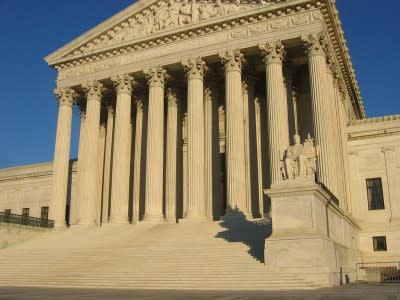The 11th Amendment: Correcting the Supreme Court in action
The 11th Amendment was ratified on February 7, 1795. The first amendment after the Bill of Rights also represented the first use of congressional power to contradict a Supreme Court decision.
The Supreme Court
The case of Chisholm v. Georgia in 1793 was the first significant decision handed down by the Court, and it was so controversial that lawmakers moved quickly to nullify its findings.
The controversy had its roots in the Revolutionary War. In 1777, the Executive Council of Georgia authorized the purchase of needed supplies from a South Carolina businessman. After receiving the supplies, Georgia didn’t pay as promised. After the merchant’s death, the executor of his estate, Alexander Chisholm, took Georgia to court to collect the debt. Georgia said that it was a sovereign state and not subject to the authority of the federal courts unless it decided to be sued.
In a 4-to-1 decision, the Court said that “the people of the United States” intended to bind the states to the national government, and that supreme or sovereign power was retained by citizens themselves, not by the “artificial person” of the State of Georgia.
Therefore, federal courts had the power to hear disputes between private citizens and States, under the Court’s interpretation of the Constitution’s Article III, Section 2.
The Chisholm decision was seen by most lawmakers as a clear intrusion on state powers, and Congress moved quickly to amend the Constitution, with the permissions of the states. The 11th Amendment as proposed and ratified on February 7, 1795, specifically overturned Chisholm, and it broadly prevented suits against states by citizens of other states or by citizens or subjects of foreign jurisdictions.
It read, “The judicial power of the United States shall not be construed to extend to any suit in law or equity, commenced or prosecuted against one of the United States by citizens of another state, or by citizens or subjects of any foreign state.” The amendment narrows conditions needed for a state to be sued, and it was seen as a victory for the sovereign immunity of the states.
Recent Historical Stories on Constitution Daily
Ronald Reagan’s big impact on the Supreme Court



